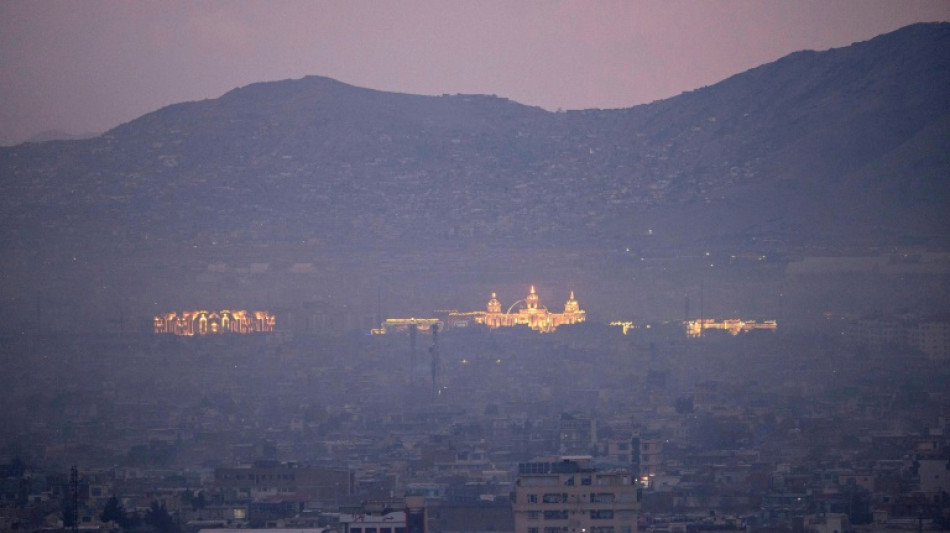
-
 The reluctant fame of Gazan photojournalist Motaz Azaiza
The reluctant fame of Gazan photojournalist Motaz Azaiza
-
Global cocaine market hit new record highs: UNODC
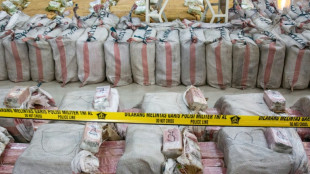
-
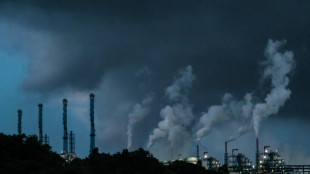 Environment fears over $6 bn Indonesia EV battery project: NGOs
Environment fears over $6 bn Indonesia EV battery project: NGOs
-
Dinusha shines on debut as Sri Lanka bowl out Bangladesh for 247

-
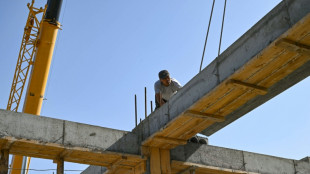 Migrant money from Russia a lifeline for Central Asia
Migrant money from Russia a lifeline for Central Asia
-
Nigerian farms battle traffic, developers in downtown Abuja
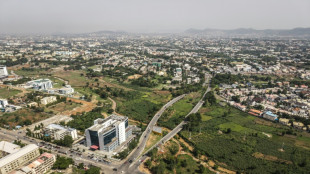
-
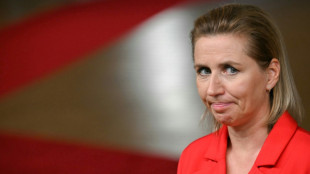 Denmark to push for stricter EU migration policies
Denmark to push for stricter EU migration policies
-
Nearly one-third of Pacific nation Tuvalu seeks Australian climate visa
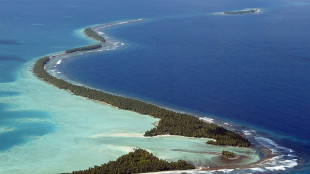
-
 White leads six Wallabies in Force side to face Lions, but no Beale
White leads six Wallabies in Force side to face Lions, but no Beale
-
Thai cannabis stores fret as government moves to tighten rules on sales

-
 Beale to spearhead First Nations and Pasifika side against Lions
Beale to spearhead First Nations and Pasifika side against Lions
-
Wimbledon: England's garden Grand Slam
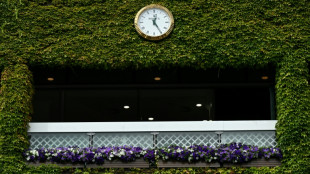
-
 Matcha: the Japanese tea taking over the world
Matcha: the Japanese tea taking over the world
-
Inter Milan, Monterrey join Dortmund in Club World Cup last 16

-
 Trail Blazers pick China's Yang in NBA draft first-round surprise
Trail Blazers pick China's Yang in NBA draft first-round surprise
-
Global matcha 'obsession' drinks Japan tea farms dry

-
 US judge sides with Meta in AI training copyright case
US judge sides with Meta in AI training copyright case
-
'Battle of Seattle' as Inter down nine-man River to advance

-
 China hosts Iranian, Russian defence ministers against backdrop of 'momentous change'
China hosts Iranian, Russian defence ministers against backdrop of 'momentous change'
-
Stocks down with eyes on Mideast, dollar hit by Trump Fed comment
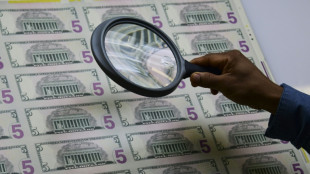
-
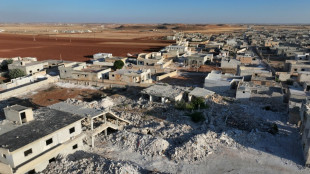 Syrian architect uses drone footage to help rebuild hometown
Syrian architect uses drone footage to help rebuild hometown
-
Verstappen hoping upgrades can boost title defence at Red Bull home race
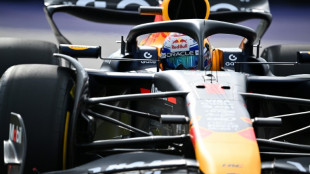
-
 After 'Dune,' Denis Villeneuve to helm next James Bond film
After 'Dune,' Denis Villeneuve to helm next James Bond film
-
Thailand makes new proposal to restrict cannabis sales

-
 Ecuador's most-wanted gang leader 'Fito' captured
Ecuador's most-wanted gang leader 'Fito' captured
-
Tunisia U-turn on phosphate plant sparks anger in blighted city

-
 Trial of Sean 'Diddy' Combs heads into closing arguments
Trial of Sean 'Diddy' Combs heads into closing arguments
-
Wallabies release Reds pair Faessler and Paisami for Lions clash

-
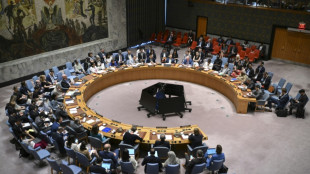 UN Charter: a founding document violated and ignored
UN Charter: a founding document violated and ignored
-
Vinicius, Mbappe have to defend: Real Madrid's Alonso

-
 US teen Cooper Flagg chosen by Mavericks with top pick in NBA draft
US teen Cooper Flagg chosen by Mavericks with top pick in NBA draft
-
Guardiola says City must be ready to 'suffer' in Orlando heat

-
 NBA studying uptick of Achilles injuries - Silver
NBA studying uptick of Achilles injuries - Silver
-
On Its Centennial: The Occasion of Replacing the Kiswa of the Noble Kaaba Embodies the Kingdom of Saudi Arabia's Enduring Care for the Two Holy Mosques
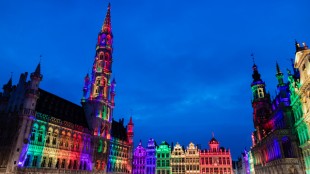
-
 Pacquiao 'hungry' for comeback after four-year layoff
Pacquiao 'hungry' for comeback after four-year layoff
-
'Job done': Sundowns coach proud despite Club World Cup exit

-
 RFK Jr vaccine panel targets childhood vaccinations in first meeting
RFK Jr vaccine panel targets childhood vaccinations in first meeting
-
Tech giants' net zero goals verging on fantasy: researchers

-
 Australia quicks hit back after strong West Indies bowling effort
Australia quicks hit back after strong West Indies bowling effort
-
Dortmund through to Club World Cup last 16, Fluminense deny Sundowns

-
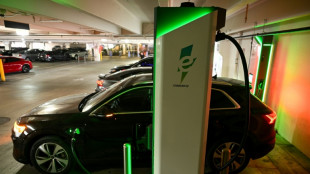 Judge orders Trump admin to release billions in EV charging funds
Judge orders Trump admin to release billions in EV charging funds
-
Sale of NBA's $10 bn Lakers expected to close this year

-
 US Fed proposes easing key banking rule
US Fed proposes easing key banking rule
-
Nvidia hits fresh record while global stocks are mixed
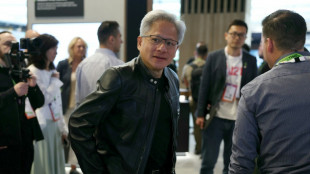
-
 Elliott-inspired England to play Germany in Under-21 Euros final
Elliott-inspired England to play Germany in Under-21 Euros final
-
Gunmen kill 11 in crime-hit Mexican city
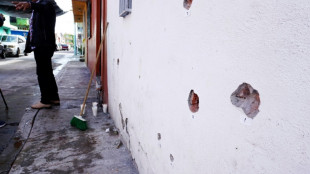
-
 Mbappe absent from Real Madrid squad for Salzburg Club World Cup clash
Mbappe absent from Real Madrid squad for Salzburg Club World Cup clash
-
Sainz opts out of race for FIA presidency

-
 Shamar Joseph rips through Australia top order in first Test
Shamar Joseph rips through Australia top order in first Test
-
Court rejects EDF complaint over Czech nuclear tender
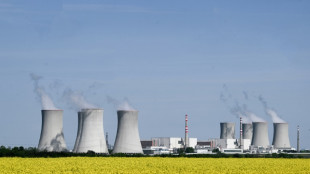

Afghan wedding halls light up sombre Kabul nights
As night settles over Afghanistan's capital, only a few small lights and neon signs pierce the darkness and thick blanket of winter pollution.
But on some street corners, glittering colossal wedding halls loomout of the gloom, a rare display of opulence in the Afghan capital.
The city of more than six million people is often plunged into shadow due to ubiquitous power outages, whichonly the wealthiest can remedy with expensive generators or solar panels.
Apart from a few vendors, the streets are deserted, a stark contrast with the chaotic hustle of the daytime.
People huddle at home to shelter from the cold and for lack of nighttime activities.
Since the Taliban took power in 2021 and imposed their strictversion of Islamic law, a veil of sadness has enveloped the capital.
There is no music spilling out from restaurants because it is forbidden, women are banned from parks, and walls decorated with colourful pro-peace graffiti have been splashed with calls to holy war.
The only bright lights emanate from the wedding halls that dot the city centre and escape some of the Taliban's scrutiny, as marriage is prized in Afghan culture.
The high-ceilinged halls are segregated by gender, with music only tolerated on the women's side.
"In Afghanistan, the marriage ceremony is the most important event for girls and boys. It's a once-in-a-lifetime event -- we don't have much divorce," said Mohammad Wassil Qaumi, director of the Imperial Continental, a palatial white-and-gold hall that shines with a glitz reminiscent of a Las Vegas casino.
"It's the start of a new life so the light should be everywhere, that's why the city is bright, it should have a little bit of luxury!" he told AFP.
- 'Weddings are a necessity' -
Bunches of plastic flowers, throne-style sofas, gilded trimming and neon lights fill the complex's four halls, some of which can accommodate up to 7,000 guests.
Qaumi, 32, says he spends $25,000 to $30,000 per month for municipal electricity, which provides a few hours of power per day.
To keep the lights on, he also pays just under $15,000 for generators.
To recoup his costs, he charges up to $20,000 for a wedding, in a country where 85 percent of the population lives on less than a dollar a day, according to the United Nations Development Programme.
"Weddings are a necessity in the Afghan culture, you have to invite more and more people" even if it means going into debt, said Haji Safiullah Esmafi, owner of the Stars Palace hall.
In another district of the capital, the City Star welcomes its guests with a beige and gold facade topped with three sculpted domes and a huge sparkling arch out front.
"Electricity is very expensive," admits the owner, 24-year-old Siyer Paiman.
But, he added, "people in Afghanistan like bright colours".
- 'Brightness of the city' -
He has invested in solar panels and spends the equivalent of $12,000 to $19,900 on generators and electricity, which only covers six to seven hours a day, "and not always at night".
Afghanistan depends on its Central Asian neighbours for imported electricity.
With the hopes of increasing supply, the country is involved in several regional interconnection projects, but progress is slow.
"The current demand in Afghanistan is about 7,000 to 8,000 megawatts but they currently produce locally about 1,000 megawatts and import the rest from Central Asia," a sector expert who asked for anonymity told AFP, adding that renewable energy sources should be developed but that funding was lacking.
Power cuts also affect heating, with temperatures easily dropping below 0 degrees Celsius (32 degrees Fahrenheit).
Kabul's residents use stoves, burning almost anything from coal and wood to plastic or household waste, creating a fog of pollution in the city slung between mountains 1,800 metres (5,900 feet) above sea level.
In the nighttime gloom, wedding halls are "the brightness of the city", said Qaumi. "Here, everyone is very happy."
"People come here to meet friends and family, (they) wear new clothes, jewellery... showing off so much," he said of patrons enjoying one of the only places left in Kabul where this is still possible.
R.Shaban--SF-PST

